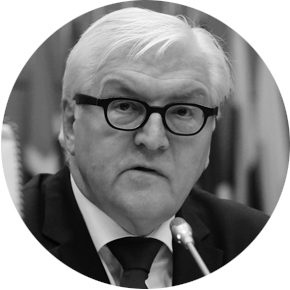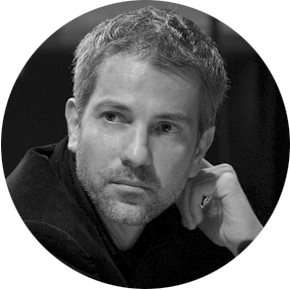The exclusive interview of German Foreign Minister, OSCE Chairman-in-Office Frank-Walter Steinmeier for Armenia, granted to Mediamax
- Mr. Minister, what are Germany's priorities for OSCE Chairmanship in 2016?
- We currently face what is perhaps the most serious threat to peace and security in Europe since the end of the Cold War. We are fully aware of what it means to assume the Chairmanship in these difficult times, and of the responsibility we will bear for Europe.
The motto we have chosen for our OSCE Chairmanship is renewing dialogue, rebuilding trust and restoring security. We will work hard for these priorities. Trust in Europe has been greatly diminished over the past few years. It will be difficult to rebuild – but there is no way around doing so! I would like us to be able to say to future generations that we did everything possible to maintain peace on our continent.
- How do you, as Chairperson-in-Office, hope to help settle the unresolved conflicts in Transdniestria, Nagorno-Karabakh and the Southern Caucasus?
- To be honest, I do not want to adopt the kind of fatalism that labels these conflicts as “frozen”. Each year they continue they bring hardship to the people affected and stagnation to the regions involved. We want to stabilise the ceasefires, build trust and alleviate the day-to-day lives of the people by taking small but tangible steps, such as improving economic exchange.
As regards the Nagorno-Karabakh conflict, armed clashes along the line of contact and the border between Armenia and Azerbaijan give us cause for concern. Germany is campaigning for an intensification of the negotiations under the auspices of the OSCE Minsk Group. One important step to this end would be the creation of a mechanism to investigate violations of the ceasefire.
As regards Transdniestria, we are seeking a comprehensive settlement that recognises the sovereignty and territorial integrity of the Republic of Moldova and grants special status to Transdniestria.
In Georgia, too, the situation is not straightforward. Nevertheless, progress has recently been made as concerns practical cooperation between the parties to the conflict. We want to maintain this momentum and underpin it with confidence-building measures and humanitarian action.
- The conflict in Eastern Ukraine has already lasted two years. What role could the OSCE play there in the future? Are there plans to expand the Special Monitoring Mission (SMM)?
- The developments in Ukraine since 2014 have shown just how indispensable the OSCE is for security in Europe. Without the Monitoring Mission we would not have made as much progress as we did on military de-escalation and withdrawing weapons, no matter what the setbacks have been. We must now waste no time in taking the necessary decisions on the Mission’s mandate and budget so that the monitors can continue their important work.
We can already say that the SMM’s current mandate has proven its worth. It gave the mission all the scope it needed to fulfil its tasks. The monitors were able to respond flexibly to the developments on the ground and to meet new demands as they arose. We therefore advocate the mandate’s extension.
- How can the OSCE foster peace and security in Europe? What advantages does an organisation like the OSCE have over other international actors?
- The CSCE process has taught us that it is all the more important not to break off dialogue between participating States in times of deep distrust and growing uncommunicativeness between East and West. The fact that the OSCE has now become the largest regional security organisation in the world shows just how contemporary this approach is.
It is also important to realise that without the OSCE, there would be no chance of any success under the Minsk peace process. The OSCE has made a crucial contribution to initiating a political process with the potential to resolve the conflict in Ukraine, through its Monitoring Mission and the key role the organisation plays in the Trilateral Contact Group. This has raised the entire organisation from a kind of Rip van Winkle slumber and put it back on the international security policy stage – and just at the right time in my opinion.
- How is the OSCE responding to the heightened threat of international terrorism?
- The appalling attack in the heart of Istanbul and last year’s acts of terrorism from Paris to Beirut have made it painfully clear that terrorism could strike any of us. It is also clear that no country can quash this threat on its own. In the coming years we thus have to strengthen the counter-terrorism capabilities of all 57 OSCE states. Switzerland and Serbia, our predecessors in the Chairmanship, have done important work in this field. We want to build on this – for example by hosting an international anti-terrorism conference in Berlin this summer.
- How can the OSCE participating states respond to the refugee crisis?
- The refugee crisis has made it obvious that we will not make headway with national strategies alone – as hard as it may be to reach agreement in Europe, we have to keep on looking for joint solutions. Within the OSCE, we are united by our common interest in combating the causes of the crisis and in improving border management in the OSCE area. We will build on this common ground in the course of the year.
In the long term, integration will be a huge task for society. That is why it is so important to act with determination against intolerance, discrimination and xenophobia in the OSCE area right now. The German Chairmanship will focus on these issues specifically, in part because of our responsibility for our past.
- What role will the OSCE human dimension themes of human rights and fundamental freedoms play for the German Chairmanship?
- Defending human rights and fundamental freedoms is right at the top of our agenda. We will work to ensure that existing obligations are duly complied with by all OSCE states – including ourselves, of course.
Good governance also remains a key criterion for sustainable economic exchange – and both are crucial for building trust. We therefore want to engage in dialogue with businesses at an economic conference in Berlin in May, and find out from them how we can strengthen economic ties in the OSCE area in a sustainable way – this would ultimately be of political and economic benefit to us.
- When you look back on the German OSCE Chairmanship one year from now – what will you be looking for to feel that your Chairmanship has been a success?
- In December, we will meet with the OSCE Foreign Ministers in Hamburg and take stock of our year at the helm. I hope that we succeed in persuading the OSCE to take constructive action again. We have to do more than simply “manage” the status quo!
In addition, as the country holding the Chairmanship, we will seek to foster consensus within the organisation. But obviously, consensus cannot be reached unless the participating States are willing to compromise. It would be a success for us all if everyone in the OSCE were to play their part.





















